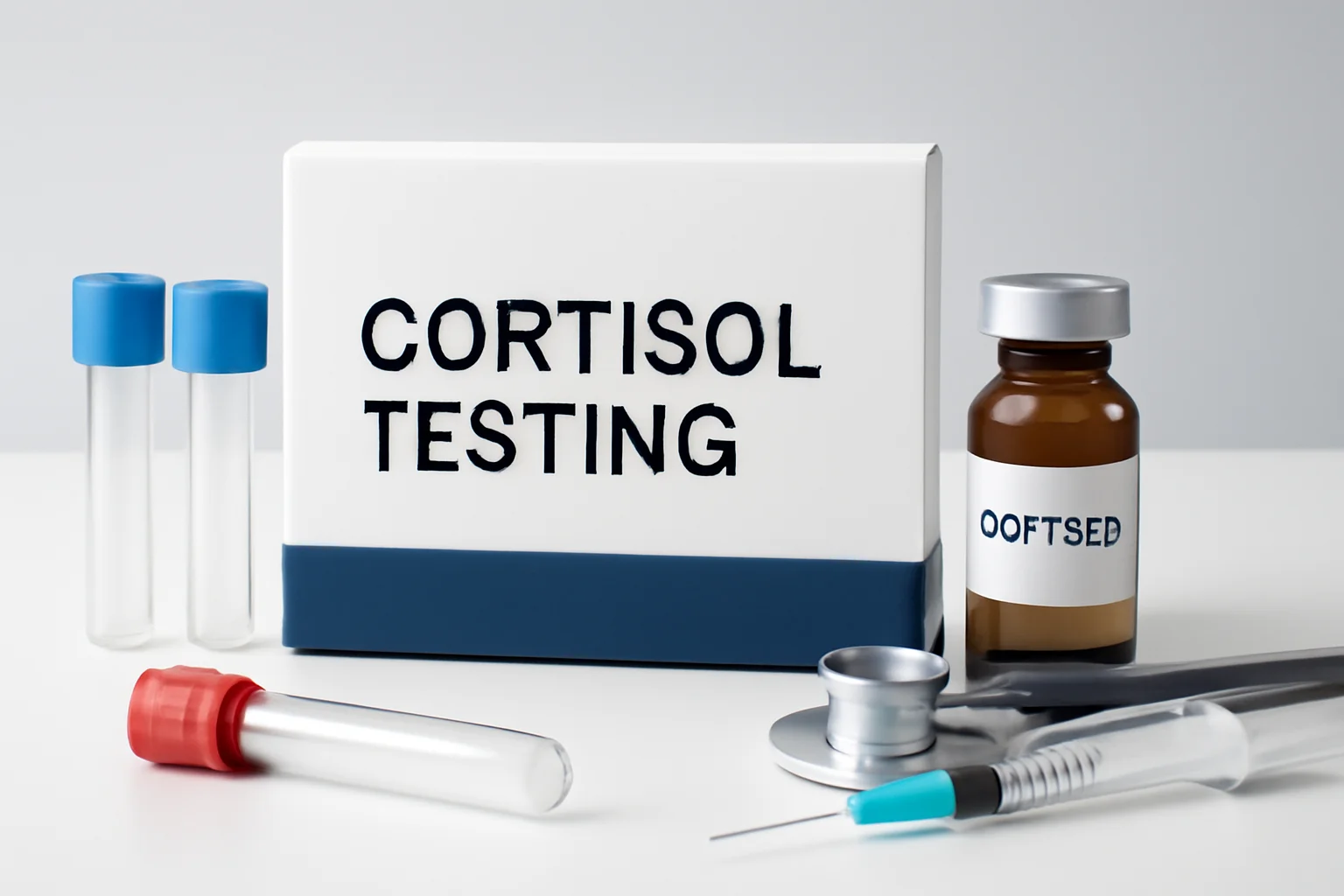
Measuring Cortisol Levels: Why and How to Do It?
The cortisol, also known as the “stress hormone,” plays a key role in the body’s response to stress. This hormone is produced in the adrenal glands and influences various physiological processes, such as blood sugar levels, blood pressure, and immune system function. Cortisol levels fluctuate throughout the day, typically peaking in the morning and gradually decreasing. However, the levels of this hormone can rise or fall due to various factors, including stress, sleep quality, nutrition, and physical activity.
There are different methods available for measuring cortisol levels, which can help professionals understand the body’s functioning. Monitoring cortisol levels can be particularly important for those dealing with chronic stress, adrenal disorders, or other hormonal issues. Testing cortisol levels can aid in establishing a proper diagnosis and determining treatment options, as hormonal imbalances can lead to numerous health problems.
Measuring cortisol levels is therefore not only a scientific curiosity but also a fundamental tool in modern medicine that can contribute to patient recovery and improvement in their well-being. To better understand the role of cortisol and the importance of measuring its levels, let’s examine the various measurement methods, the effects of cortisol levels, and the possibilities for maintaining hormonal balance.
Measuring Cortisol Levels: Methods and Procedures
Cortisol levels can be measured using various methods, which doctors select based on the patient’s condition and the purpose of the examination. One of the most common methods is a blood test. Determining the cortisol level in the blood is done in the morning, fasting, as this is when the hormone level is highest. Blood sampling is a relatively simple and quick procedure that allows for accurate results.
Another procedure is the saliva test, which is used to measure cortisol levels. Collecting saliva samples is simpler than blood samples and is less invasive for the patient. The cortisol level in saliva reflects the cortisol level in the blood, so saliva tests can also provide reliable information about the hormone’s level. This method can be particularly useful in home settings, as samples can be easily collected.
The third method is a urine test, which determines cortisol levels in a 24-hour urine sample. This method allows for longer-term observation of cortisol levels since the amount of cortisol in urine reflects hormone production over the previous 24 hours. Analyzing urine samples also provides reliable results and can help in the overall assessment of cortisol levels.
When measuring cortisol levels, it is important to consider the timing and conditions of sample collection, as cortisol levels vary throughout the day. To achieve the best results, it is recommended to collect samples at the same time of day. Accurate interpretation of the measurements requires appropriate medical background, as cortisol levels depend on various factors, including stress levels, sleep quality, nutrition, and physical activity.
The Effects of Cortisol Levels on Health
Cortisol levels have a direct impact on various processes in the body, and imbalances can lead to numerous health problems. Elevated cortisol levels due to chronic stress can contribute to the development of cardiovascular diseases, diabetes, and mental disorders such as anxiety and depression.
High cortisol levels can also affect immune system function. Chronic stress and increased cortisol levels can weaken the immune response, making the body more susceptible to infections and diseases. Additionally, rising cortisol levels can influence body weight regulation. Constantly high hormone levels can promote fat storage, particularly in the abdominal area, which can lead to obesity in the long term.
A decrease in cortisol levels can also cause problems. Low cortisol levels, known as Addison’s disease, can lead to fatigue, muscle weakness, and low blood pressure. Symptoms of such hormonal imbalances can be severe and require medical intervention.
Measuring cortisol levels is therefore crucial for diagnosing and treating various health problems. Professionals can determine whether cortisol levels are within a normal range or if intervention is needed. To maintain healthy cortisol levels, it is recommended to apply stress management techniques, ensure proper nutrition, and engage in regular physical activity.
How to Naturally Regulate Cortisol Levels?
Naturally regulating cortisol levels is essential for maintaining health. Various lifestyle factors influence hormone levels, and the following tips can help optimize cortisol levels.
First, applying stress management techniques is essential. Practices such as meditation, breathing exercises, yoga, and mindfulness can help reduce stress levels, thereby contributing to the normalization of cortisol levels. These techniques positively impact not only mental health but also physical well-being.
Second, adequate sleep is also crucial for regulating cortisol levels. Restful sleep helps maintain hormonal balance, so it is important to allocate enough time for rest. Establishing a regular sleep rhythm, ensuring a suitable sleeping environment, and minimizing screen time can all contribute to good sleep quality.
Nutrition also significantly affects cortisol levels. A healthy, balanced diet rich in fruits, vegetables, whole grains, proteins, and healthy fats can help maintain hormonal balance. Additionally, moderating caffeine and alcohol consumption is recommended as these substances can contribute to increased cortisol levels.
Finally, regular physical activity is very important for regulating cortisol levels. Physical activity reduces stress levels, improves mood, and helps maintain hormonal balance. Moderate-intensity exercises such as walking, cycling, or swimming are particularly beneficial for cortisol levels.
Naturally regulating cortisol levels is therefore possible, and by considering the tips mentioned above, we can contribute to maintaining hormonal balance and a healthy lifestyle.
**Warning:** This article does not constitute medical advice. In case of health problems, everyone should only follow their doctor’s advice.

